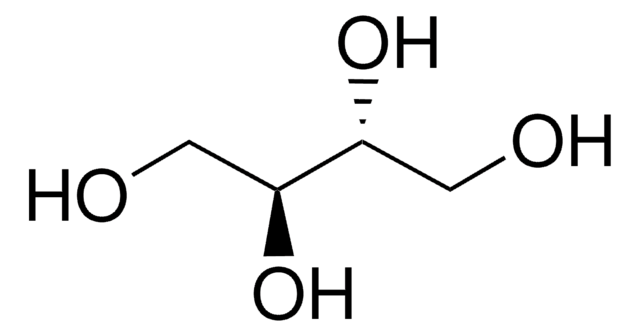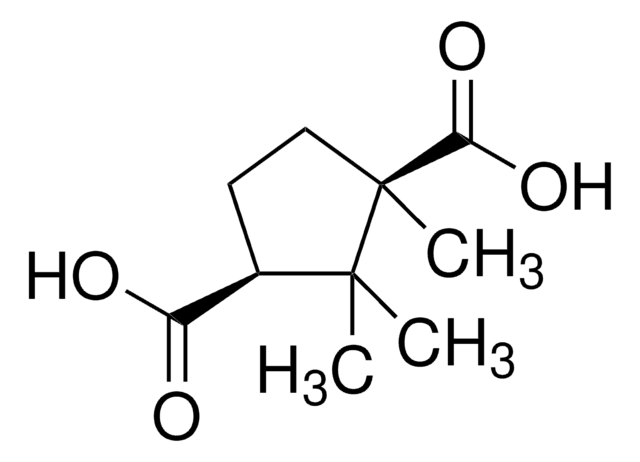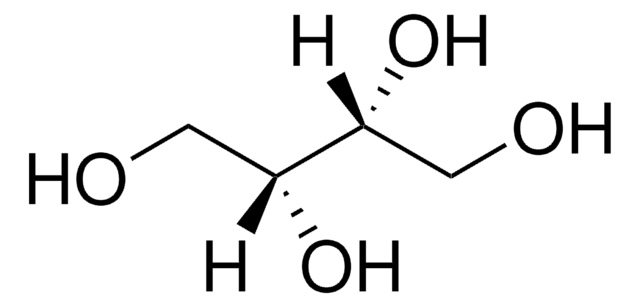41707
2-C-Methyl-D-erythritol
≥90% (GC)
Sinónimos:
(2S,3R)-2-Methyl-1,2,3,4-tetrahydroxybutane, (2S,3R)-2-Methylbutane-1,2,3,4-tetrol
About This Item
Productos recomendados
biological source
(Carum ajowan fruit)
Quality Level
assay
≥90% (GC)
form
viscous liquid (clear)
color
colorless
storage temp.
2-8°C
SMILES string
C[C@](O)(CO)[C@H](O)CO
InChI
1S/C5H12O4/c1-5(9,3-7)4(8)2-6/h4,6-9H,2-3H2,1H3/t4-,5+/m1/s1
InChI key
HGVJFBSSLICXEM-UHNVWZDZSA-N
Categorías relacionadas
General description
Biochem/physiol Actions
Other Notes
Storage Class
10 - Combustible liquids
wgk_germany
WGK 3
flash_point_f
Not applicable
flash_point_c
Not applicable
Elija entre una de las versiones más recientes:
Certificados de análisis (COA)
¿No ve la versión correcta?
Si necesita una versión concreta, puede buscar un certificado específico por el número de lote.
¿Ya tiene este producto?
Encuentre la documentación para los productos que ha comprado recientemente en la Biblioteca de documentos.
Nuestro equipo de científicos tiene experiencia en todas las áreas de investigación: Ciencias de la vida, Ciencia de los materiales, Síntesis química, Cromatografía, Analítica y muchas otras.
Póngase en contacto con el Servicio técnico







